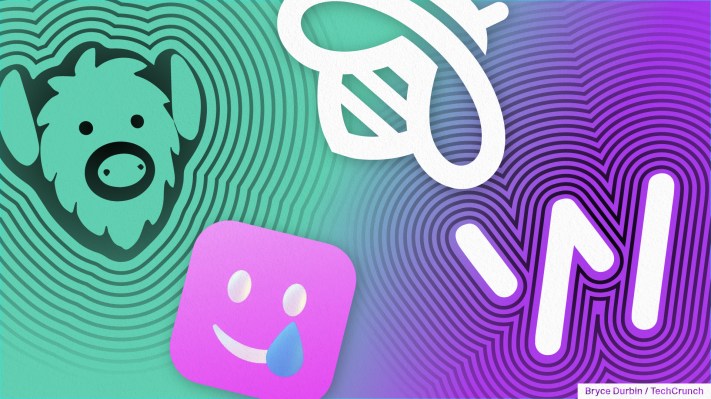Anonymous social apps are in for a reckoning. Yes, again. This week, University of North Carolina (UNC) System President Peter Hans announced a plan to block the use of popular anonymous social apps on campus, including Yik Yak, Fizz, Whisper and Sidechat. The ban would impact the 16 universities, like UNC Chapel Hill, NCSU, UNC Charlotte, and others, as well as one public residential high school that comprises the UNC system.
In remarks shared in a letter with the UNC Board of Governors, Hans explains the reason for the ban, noting that these small, hyper-local platforms have “shown a reckless disregard for the wellbeing of young people and outright indifference to bullying and bad behavior.”
The apps also turn a blind eye to other problems, like sexual harassment, racial insults and drug dealing, he noted.
If you’re not familiar with these apps, you’re probably not the target demographic.
Anonymous social apps tend to appeal to younger users and are often used for bad behavior like bullying, harassment and online abuse. Or as Hans colorfully puts it, the apps are “the modern equivalent of scrawling cruel rumors on the bathroom wall, except now with a much larger audience.”
Many of the modern versions of the anonymous social set also narrowly target young people by operating within a five-mile radius of a college or university campus. That leads to large adoption among college students but, because of their use case, they’re often overlooked by college administrators. Hans, for example, admitted he had never heard of any of these apps until a group of study body presidents brought them to his attention.
The anonymous social trend, unfortunately, is not new. It seems every few years — and no matter how many times anonymous apps like these fail — someone, somewhere builds yet another anonymous social platform. It’s the cockroach category of social media.
Yik Yik, in fact, is on its second life. The initial version shut off access to U.S. middle and high school students amid bullying and threats of violence in 2014, then shut down for good in 2017 as its co-founders headed off to Square (now Block) in an acqui-hire style acquisition. But in 2021, the app resurfaced — or at least, one bearing its same name and branding but under new ownership. (See what I mean about cockroaches?)
No matter how many times this trend is tried, standalone anonymous social apps aimed at consumers rarely lead to a sustainable business. The cost of becoming a home to so much toxic content ultimately does them in, whether because of consumer backlash over their failure to address the cyberbullying (RIP Secret), app store bans (RIP Sarahah), de-platforming and lawsuits (RIP Snap’s anonymous social developer partners), regulation (RIP Ask.fm) or, as in the case of the earlier version of YikYak, numerous campus-wide bans impacting its target market.
With UNC’s move to ban the apps from operating on its network, the beginning of the end for this current set of apps could be nearing. Already, among this group there were turf wars and consolidation — Sidechat quietly acquired Yik Yak last year, for instance. Now, these apps are surfacing on the radar of those who have the ability to hurt their adoption and usage.
While the UNC ban doesn’t mean university students won’t be able to access these apps — they could still use these apps over their cellular plan or other Wi-Fi networks — it’s at least an attempt to steer students away from these platforms and the risky behaviors they inspire.
“My hope is that this action, admittedly a small step, will prompt deeper reflection about how we’re encouraging our students to spend their time, engage with their peers, and cultivate a public square that’s worthy of a public university,” wrote Hans.
The UNC System president said he was inspired to take action after listening to a public lecture given by NYU social psychologist Jonathan Haidt, who pointed out that our current relationship with technology and online life is a choice, and we could make different choices.
“We used to prescribe opium to children, [Haidt] noted, and we stopped when it became clear that we were doing terrible harm,” Hans said.” I think we’re approaching a similar moment of clarity when it comes to the digital meds freely dispensed to them for the last fifteen years,” he added.
Yik Yak, Sidechat, Whisper and Fizz were asked for comment using public email addresses published on their websites and in their terms of service. None of the companies responded and some of their published emails don’t work, even though the apps are up and running. Attempts to reach Fizz through a previous PR rep also failed. Sidechat quietly acquired Yik Yak in 2023.
The apps today have a small foothold among younger users. According to data from app intelligence firm AppFigures, Yik Yak is the largest of the group, with over 3.5 million iOS installs since 2021, almost entirely in the U.S.. Sidechat has roughly 334,700 iOS installs (92.8% are in the U.S.); Whisper has 761,044 Android installs (and 4.2M since 2017); and Fizz has 583,318 iOS installs.
Some of the apps have caught the attention of universities before. In addition to the original Yik Yak, Harvard reached out to Sidechat in January over student reports of antisemitic posts on its platform, asking the company to do more to moderate its content. Florida State University also included Fizz in its 2023 ban on apps that threatened personal privacy and national security, alongside TikTok, WeChat, and others as did Florida A&M.
The four anonymous social apps Hans referenced aren’t yet banned on UNC campuses. However, Hans asked the legal and IT teams to develop a plan to block the apps from the UNC System infrastructure. He did not share a timeline as to when the blocks would be in place.
Sarah Perez is reachable at sarahp@techcrunch.com or @sarahperez.01 / 415.234.3994 on Signal.
